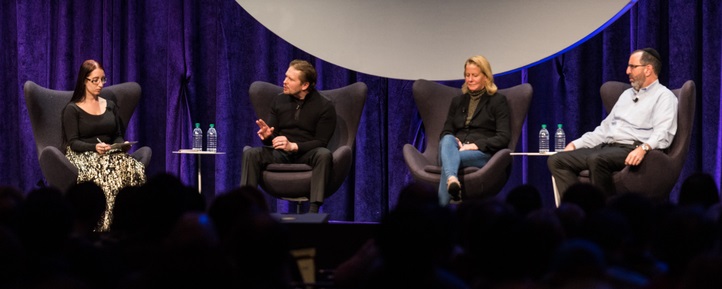Innovation Futures
"When Technology Kills"
The world is in the midst of a technological revolution. The emergence and sophistication of machine learning, artificial intelligence, the Internet of Things, and smart data are pushing the limits for making what was once impossible, possible. As technology is increasingly being used to automate and simplify tasks there are many questions arising – how much autonomy machines should be given, what regulations should be put in place to govern software development, what additional training should humans have to manage these new software systems, and ultimately, who is responsible when software fails and causes property damage, injury, or loss of life.
TEDx: The Future of Human Behavior
How will new adaptive technologies change who we are and the way we behave? And how can leaders shape their organisations while bringing out the best from our common human perspectives? In this talk, Eric shares strategies we can use to meet our aims. He’ll take us through thought leadership exercises in organisational behavior, on a voyage to Mars and the impact of family on personal perspectives. The talk uses personal photographs to illustrate the duality within the perspectives of individuals, their families, the communities to which they belong and the businesses they lead.
IBM World of Watson Interview
Spherical world of the future … it’s here AI, machine learning … these can seem like futuristic concepts, but they’re happening now. Furrier asked about how we can learn to deal with this spherical world, a much more fluid world, where there’s no real divide between our work lives and our personal lives. “We’re blurring lines between personal and business, all the time. I think that when we’re looking at businesses itself, as individuals, it’s important to take a look at what’s causing efficiencies within your personal life,” Hunter said. “Oftentimes, it’s the tools we use every day; whether it’s the Google searches or whether you’re logging into Facebook or Twitter feeds … that spherical aspect, that idea that each individual can be their own collaboration point is something that I think really touches on that.” Hunter went on to explain, “So when we’re talking about elements like Watson and AI and innovation, it’s really important to think of, okay, we’re actually [already] interacting with this, every day, and oftentimes, the results are subtle. Whether it’s [our] favorite sports teams [that] we watch, [or] the newscasts, or how we approach our business and the individuals in it, we’re all interacting with it. And understanding that I think helps people take the first step.”
TEDx: Harmony and Analytics: Building Predictive Organizations
Eric’s talk outlines our diverse mentalities, ranging from arts and technology to education. It shows how we can embrace new methods of communication when it comes to learning in both education and business. It will show how analysing data can lead to the discovery of new ways to engage businesses and individuals in common themes.

